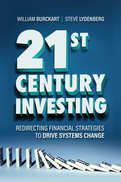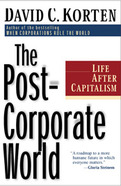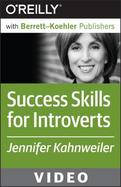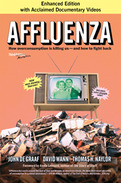—Susan Cain, New York Times bestselling author of Quiet and Quiet Power and cofounder of Quiet Revolution
How does a self-described "extreme introvert" thrive in a world where extroverts are rewarded and social institutions are set up in their favor? Using her extraordinary personal story as a "case study of one," author Jill Chang shows that introverts hold tremendous untapped potential for success. Chang describes how she succeeded internationally in fields that are filled with extroverts, including as an agent for Major League Baseball players, a manager of a team across more than twenty countries, and a leading figure in international philanthropy. Instead of changing herself to fit an extroverted mold, she learned to embrace her introversion, turning it from a disadvantage to the reason she was able to accomplish great goals and excel in tasks that her extroverted peers missed. She offers advice on the best jobs for introverts, overcoming the additional difficulties language and cultural barriers can present, thriving at social events and business presentations, leveraging the special leadership traits of introverts, and much more. Part memoir and part career guide, this book gives introverts the tools to understand how they can form relationships, advance in the career path, excel in cross-cultural workplaces, and navigate extroverted settings without compromising comfort or personality.
It's time for a new way to think about investing, one that can contend with the complex challenges we face in the 21st century.
Investment today has evolved from the basic, conventional approach of the 1950s. Investors have since recognized the importance of sustainable investment and have begun considering environmental and social factors. Yet the complexity of the times forces us to recognize and transition to a third stage of investment practice: system-level investing.
In this paradigm-shifting book, William Burckart and Steve Lydenberg show how system-level investors support and enhance the health and stability of the social, financial, and environmental systems on which they depend for long-term returns. They preserve and strengthen these fundamental systems while still generating competitive or otherwise acceptable performance.
This book is for those investors who believe in that transition. They may be institutions, large or small, concerned about the long-term stability of the environment and society. They may be individual investors who want their children and grandchildren to inherit a just and sustainable world. Whoever they may be, Burckart and Lydenberg show them the what, why, and how of system-level investment in this book: what it means to manage system-level risks and rewards, why it is imperative to do so now, and how to integrate this new way of thinking into their current practice.
Capitalism is a pathology that commonly afflicts market economies in the absence of vigilant public oversight. Since the economy internal to a corporation is a planned economy, the current consolidation of economic control under a handful of global corporations is a victory for central planning-not the market economy. The alternative to the new global capitalism is a global system of thriving, healthy market economies that function as extensions of healthy local ecosystems to meet the livelihood needs of people and communities.
Radical as such proposals may seem, they actually reflect processes that are steadily gaining momentum around the world. The Post-Corporate World provides a vision of what's needed and what's possible, as well as a detailed agenda for change. Korten shows that to have a just, sustainable and compassionate society, concentrated absentee ownership and footloose speculative capital as embodied in the global, for-profit public corporation must be eliminated in favor of enterprises based on patient, rooted, stakeholder ownership limited to those who have a stake in the firm as a worker, supplier, customer, or member of the community in which it is located.
Korten outlines numerous specific actions to free the creative powers of individuals and societies through the realization of real democracy, the local rooting of capital through stakeholder ownership, and a restructuring of the rules of commerce to create "mindful market" economies that combine market principles with a culture that nurtures social bonding and responsibility.
Like Korten's previous bestseller, When Corporations Rule the World, this provocative book is sure to stimulate national dialogue and debate and inspire a bevy of grassroots discussions and initiatives. The Post-Corporate World presents readers with a profound challenge and an empowering sense of hope.
• From the bestselling author of When Corporations Rule the World
• An extensively researched, powerfully argued, eye-opening critique of how today's corporate captialism is destroying the things of real value in the world-like cancer destroys life
• Portrays a hopeful future-alternatives to a corporate-dominated and money-ruled world-in showing how to resore health to markets, democracy, and every day life
• Offers practical suggestions for individuals who want to contribute to the process of change
• Co-published with Kumarian Press
There is a deep chasm between the promises of the new global capitalism and the reality of social breakdown, spiritual emptiness, and environmental destruction it is leaving in its wake. In this important book, David Korten makes a compelling and well-documented case that capitalism is actually delivering a fatal blow not only to life, but also to democracy and the market. Among his startling ideas:
Capitalism is a pathology that commonly afflicts market economies in the absence of vigilant public oversight. Since the economy internal to a corporation is a planned economy, the current consolidation of economic control under a handful of global corporations is a victory for central planning-not the market economy. The alternative to the new global capitalism is a global system of thriving, healthy market economies that function as extensions of healthy local ecosystems to meet the livelihood needs of people and communities.
Radical as such proposals may seem, they actually reflect processes that are steadily gaining momentum around the world. The Post-Corporate World provides a vision of what's needed and what's possible, as well as a detailed agenda for change. Korten shows that to have a just, sustainable and compassionate society, concentrated absentee ownership and footloose speculative capital as embodied in the global, for-profit public corporation must be eliminated in favor of enterprises based on patient, rooted, stakeholder ownership limited to those who have a stake in the firm as a worker, supplier, customer, or member of the community in which it is located.
Korten outlines numerous specific actions to free the creative powers of individuals and societies through the realization of real democracy, the local rooting of capital through stakeholder ownership, and a restructuring of the rules of commerce to create "mindful market" economies that combine market principles with a culture that nurtures social bonding and responsibility.
Like Korten's previous bestseller, When Corporations Rule the World, this provocative book is sure to stimulate national dialogue and debate and inspire a bevy of grassroots discussions and initiatives. The Post-Corporate World presents readers with a profound challenge and an empowering sense of hope.

Many organizations that place emphasis on teamwork tend to value people who promote themselves and think on their feet. Meanwhile, quiet types like programmers and other techies, who sit alone and become absorbed in their work, are often overlooked or misunderstood. But introverts can be highly effective influencers when they forego an extrovert’s in-your-face techniques and use their natural strengths to make a difference.
In this video workshop based on her book Quiet Influence: The Introvert's Guide to Making a Difference (Berrett-Koehler), Jennifer Kahnweiler identifies specific workplace challenges for introverts—including "people exhaustion"—and helps you investigate strengths and weaknesses in the context of a real-life work scenario. The bulk of this video shows how introverts can succeed at work by cultivating six key strengths:
- Taking Quiet Time to unleash creativity and sustain energy
- Preparation to prove the value of your proposal and involve others
- Engaged Listening to gain increased understanding of situations
- Focused Conversations to solve problems and work through conflict
- Writing to advocate a position, and motivate others
- Thoughtful Use of Social Media to grow relationships and move people to action
Several exercises will help you connect with these concepts. Introversion didn’t derail Tim Cook or Warren Buffett. It doesn’t have to impede your livelihood, either. This video was produced in partnership with Berrett-Koehler Publishers.
Jennifer B. Kahnweiler, Ph.D., is a global speaker, bestselling author and thought leader who helps introverts lead with quiet confidence. Her bestselling books, The Introverted Leader, Quiet Influence, and The Genius of Opposites, have been translated into 14 languages.
Jennifer has worked with hundreds of organizations including GE, Hewlett-Packard, NASA, Boeing and the CDC She is a Certified Speaking Professional (CSP), granted to only 8% of the National Speaker’s Association and she invites you to visit her website at jenniferkahnweiler.com/.
2014
This edition examines the role overconsumption played in the 2008 economic collapse, & how our economy and society have changed since.
- New edition of a classic book-the first two editions sold over 150,000 copies
- Still the most thorough diagnosis of the disease of overconsumption: symptoms, causes, consequences, and cures
- Updated to incorporate the 2008 economic collapse, new measures of societal health, and new policy prescriptions
Welcome to the enhanced edition of Affluenza! Each chapter of this updated third edition features scenes from the popular national PBS specials “Affluenza” and “Escape from Affluenza,” co-produced by Affluenza co-author John de Graaf and hosted by National Public Radio's Scott Simon.
This iconic book shows how problems ranging from loneliness, endless working hours, and family conflict to rising debt, environmental pollution, and rampant commercialism are all symptoms of this global plague. In the enhanced edition you'll see hilarious skits including the frightening original diagnosis of “affluenza” and the shocking “surrender of the Joneses.” You'll meet experts and hear from ordinary people about how affluenza has affected their lives and what they are doing about it. You'll see victims of shopping fever and swollen expectations as they roam through the “affluenza hot zones” of tourist-destination shopping malls, watch in horror as marketers plan the manipulation of children, take a quick trip through the history of this dreaded disease, and see its often invisible but terrible consequences made visible. But it's not all gloom and doom—far from it. You'll also drop in on a simplicity circle (“affluholics anonymous!”), wander through a magical marsh where you come out enriched “and your wallet is still as full as when you left home,” and share the life of an urban family who is beating the bug! The authors also trace the role overconsumption played in the Great Recession, discuss new ways to measure social health and success (such as the Gross Domestic Happiness index), and offer policy recommendations to make our society more simplicity-friendly.
Remember that nine out of ten doctors recommend this book as the cure for affluenza! Happy reading and…happy viewing!
There are a total of 23 videos spanning 39:36 minute. File size: 379.7 MB
Based on two highly acclaimed PBS documentaries watched by 10 million viewers, Affluenza uses the whimsical metaphor of a disease to tackle a very serious subject: the damage done-to our health, our families, our communities, and our environment-by the obsessive quest for material gain. In cleverly titled chapters such as "Swollen Expectations" and "A Rash of Bankruptcies," the authors examine the origins, evolution, and symptoms of the affluenza epidemic. But they also explore cures and suggest strategies for rebuilding families and communities and for restoring and respecting the earth.
The 2008 economic collapse demonstrated how prophetic this book was. The third edition examines the role overconsumption played in the collapse and how our economy and society have changed since then. The authors also discuss new ways to measure social health and success, such as the Gross Domestic Happiness index, and offer policy recommendations to make our society more simplicity-friendly. The underlying message isn't to stop buying; it's to buy carefully and consciously, remembering, always, that the best things in life aren't things.
affluenza, n. a painful, contagious, virally transmitted condition of overload, debt, anxiety, and waste resulting from the dogged pursuit of more.
The money myths end here.
We don't need to choose between creating meaningful wealth for ourselves and our families today, or supporting social movements creating a better tomorrow. We don't all need to become certified financial "experts" to be economically empowered and make a real difference in our communities. And we're far from powerless when it comes to changing the financial system, just because we don't happen to belong to the 1%. Quite the opposite.
Financial activism is how everyday people radically reimagine money as a tool for widespread well-being, instead of a weapon of absurdly increasing inequality. It's the antidote to traditional finance that evokes confusion, trauma, and (in the best-case scenario) straight-up boredom. It's how we-the underestimated-collectively resist systems that cause harm to people and the planet for the sake of profit, reclaim wealth that's been stolen, and redesign our relationships with capital and one another, in ways big and small.
Going beyond tried financial literacy, The Financial Activist Playbook offers eight accessible, actionable, "choose-your-own-adventure" strategies for readers to experiment with. Drawing on timely insider knowledge from the worlds of impact investing, social justice, and more, Rashid illuminates a treasure trove of stories: demonstrating how people power can flow big bucks out of extractive industries, and into the economy of care and abundance we deserve.
Playbook readers will be equipped to start visualizing and influencing the unique networks of wealth all around each of us, with strategies like
- Shifting collective budgets and bank dollars;
- Flexing our role as everyday philanthropists;
- Leveraging the magic of community investment;
- And so much more.















